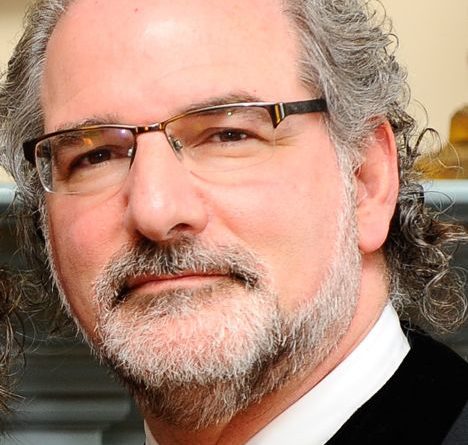The Problem of Wealth by Rabbi Joe Rooks Rapport
Judaism is a religion built on justice and our word for justice is tzedakah.
Walking to lunch with a good Christian friend, a minister who was inviting me to join in a charitable project his congregation had just begun, we passed a beggar on the street. She was sitting on a stoop; thin, gaunt, wearing sunglasses on a cloudy day, smoking a cigarette as she spoke:
“Can either of you guys spare some change for a cup of coffee?”
I stick my hand into my pocket as I do when I pass a beggar. Usually, I have a dollar bill I can spare, but today all I have is two twenties and a five. I give her the five, smile, and walk on.
We turn into the restaurant, and as we enter, my Christian friend says: “That was very kind.”
And I reply: “What was?”
He says: “Your gift to that woman.”
And I say, “It was her money really, I was just carrying it for a while.”
Somewhere within that stream of consciousness can be found the difference between the Christian concept of charity which is based upon kindness, caritas, and the Jewish concept of tzedakah, which is based upon justice, as outlined directly in Elizabeth Hinson-Hasty’s The Problem of Wealth. And while the Sabbatical laws, the release of the Jubilee, the tithing of our harvests, and the corners of our fields may have passed into the memories of our biblical agrarian history, the value of tzedakah lives on in Jewish law through the responsibility to give at least 10 percent of all we make. Tzedakah belongs to the poor, it’s the law, to withhold it would be tantamount to theft.
In a certain sense caritas and tzedakah are two sides of the same coin. The act of charity is an act of love and within it there lies the recognition of the essential humanity of those in need. If we are all God’s children, and if God loves us all, then we too should be the bearers of that love. Tzedakah is a matter of law, it is an act of justice and inherent within it is the recognition that the poor have rights under the law just like everybody else. We all live in covenant with the same God and we are all bound by it, rich and poor alike. We express these values in different ways, but at their core, the Jewish value of Tzedakah and Christian value of Charity are both built around a worldview which requires a covenantal relationship between the people who have the means to give and the people who have the needs to receive.
There is a legend in the Talmud (Baba Batra 10a) about the first century sage Rabbi Akiva who was challenged by a Roman General who said:
“If your God loves poor people, why doesn’t your God provide for their needs.”
Rabbi Akiva replies: “So that we might be saved from hell by caring for their needs ourselves.”
The Roman General responds: “On the contrary, this is what makes you deserving of hell.
Let me demonstrate in a parable. A king is angry at a servant, locks him up in prison, and commands that he shall be given no food or drink. If someone went and fed him a gave him drink, wouldn’t the King be mad?”
Rabbi Akiva answers: “Let me tell you a parable. A king is angry at his son and locks him up in a prison. He commands that he shall have no food or drink. If someone went and fed his son and gave him something to drink, when the king heard of this, wouldn’t he give that person a reward? And, are we not all the children of God?”
The Roman General mocks Judaism’s commitment to caring for the poor. “If God made them poor, this must be what God intends.” His parable defends this by positing a God who punishes the poor, like a servant who has lost favor in his master’s house. Akiva’s parable speaks of the poor as the children of God, and those who care for them as being worthy of praise.
There is an otherworldliness to this ideal, I know. It seems quaint and honorable, but so far from the distance which we now place between our giving and the receiving of our charity. And, as The Problem of Wealth so clearly shows, that distance is mirrored in the neighborhoods in which we live, the places we work, where our children go to school, and how burdened we will be in bearing the cost of whatever education we might be able to receive. Thus, when we consider the great economic shifts which would be required to address the ever widening divide between rich and poor in this country, that distance between us seems almost impossible to overcome.
We seldom meet the people whose lives our tzedakah, our acts of economic Justice will directly affect. And it is, I believe, this distance which causes us to lose sight of the tzedek beneath the tzedakah: the justice which is, or ought to be, at the root of all our righteous deeds. In Biblical Times, care for the poor was a commandment integrated into the legal, economic, and agrarian society in which we lived. That age has past, but the responsibility lives on. We owe the poor a systematic means to lift them out of poverty. It’s their money, we are just carrying it for awhile.
Tzedakah means Justice. A “righteous soul,” a tzadik, gives tzedakah. In the end then, the question is simply this: Are you a tzadik? Are you a righteous soul?
Rabbi Joe Rooks Rapport is a Senior Rabbi at The Temple, Congregation Adath Israel Brith Sholom, in Louisville, Kentucky. He received his Ph.D. from Washington University in 1988 and has taught Bible and Jewish Thought for more than two decades at Bellarmine University.


Pingback: 1programmers